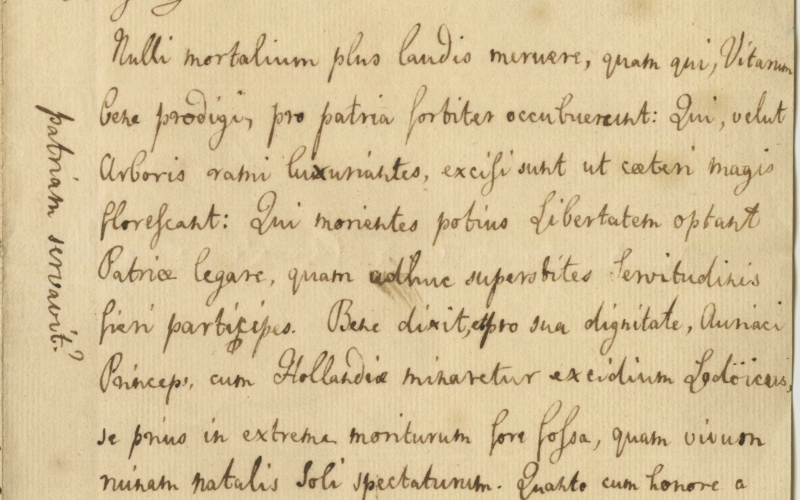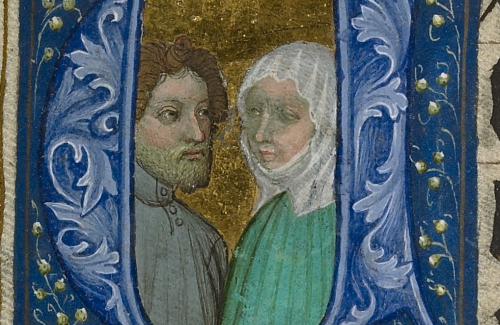#24 William Blackstone Essay
This item was chose for everyone suffering through exams! Oxford’s teaching methods have changed a lot over the years, for which I think we can all be grateful.
1.This is an undergraduate essay by William Blackstone, one of two that we own, along with two by Samuel Johnson.
2. It demonstrates one of the teaching methods from the eighteenth century. Students would be given a phrase or motto in Latin, and they would have to compose a response to it, also in Latin.
3. The resulting essay would then be read out in public, probably over dinner in Hall.
4. Blackstone was at Pembroke in 1738, so this essay must date from around that time.
5. He would later go on to become a Fellow of All Souls in 1743, as well as being called to the Bar. He taught, gave lectures, and helped with the administration of All Souls, although he would later leave there to concentrate on his law practice.
6.In 1753, he gave a lecture series in Oxford on English Law, which he later published as ‘An Analysis of the Laws of England.’ This was wildly successful, and earned him £453 (about £90,000 today)
7. He would later write a 4 volume ‘Commentary on the Laws of England’ again following a lecture series. It made the potentially complicated and impenetrable web of law and precedent understandable to non-lawyers for the first time. First published in 1765-6, it would go on to be republished frequently.
8. This set of Commentaries would go on to be vital in shaping Common Law not only in England, but also in the United States, where it was used by the early supreme court in handing down judgements, something that continues to this day.
9. The College has an extensive Blackstone collection, including commentaries on the commentaries, summaries of the commentaries, responses to the commentaries on the commentaries and similar works! This was the result of a kind donation by the New York Lawyer, Alan May, facilitated by Pembroke friends in the US.
10.The motto used on this essay, Dulce et decorum est pro patria mori, is from the Roman poet Horace’s Odes. It is probably most famous in Britain for its use by the WWI poet, Wilfred Owen.

